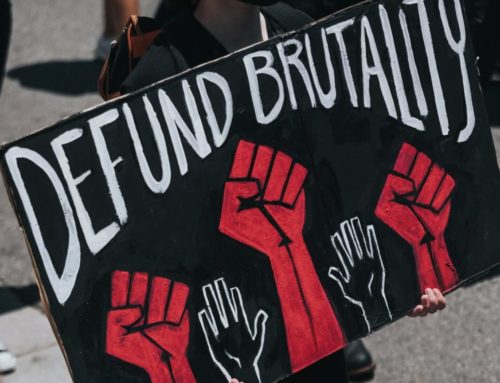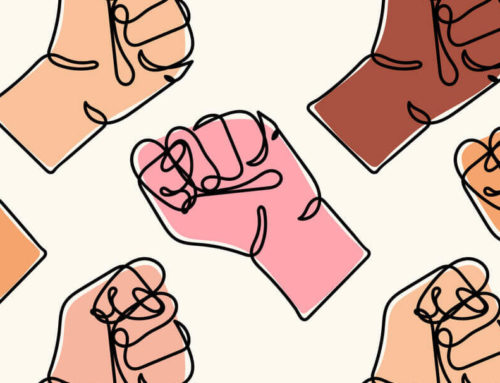by Alicia Walters, Movement Building Coordinator, Forward Together
Originally published on Beyond the Picket Fence: The Strong Families Blog.
On August 9th, 2014, unarmed teenager Michael Brown was shot to death by a police officer in Ferguson, Missouri. In the weeks after his death, protests ensued and a national dialogue began about police brutality, the over policing of communities of color, the militarization of our police forces, and the right to parent your child in a safe environment, free from violence. In response, Echoing Ida writers spoke out to elevate the voices of Black women and the impact of the killings on our communities.
In a ThinkProgress article, Jasmine Burnett and Gloria Malone shared their thoughts about how the killing of Michael Brown is a reproductive justice and feminist issue.
“We look at the right to have a child, to not have a child, and to parent your child in a safe and sustainable community free from violence,” Jasmine Burnett, a black feminist activist, told ThinkProgress. “If you aren’t safe in your community because you’re racially profiled by the police, and you can’t walk from your home to a clinic or to a hospital to access the services you need, then that’s not really a full articulation of reproductive justice.”
“Reproductive justice is about the whole person — their mental, physical, and economic well being. And when you live in an area that is over policed and dealing with police brutality, that absolutely affects your mental health,” Gloria Malone, a Latina activist who organizes around issues facing young mothers, added. “The killings of these children leave a huge emotional scar.”
Jasmine reminds us that talking about the issue is never enough, we must demand action and changes in society’s behavior.
“People are talking about it — that’s great,” Burnett added. “But it means nothing if your interactions with people of color, and your politics around people of color, don’t change. It will take society really building the power of people of color, because all I see is us being tortured and violated in our communities.”
In a piece for RH Reality Check, Riots and Research: What a 1968 Report on Urban Unrest Has to Do With Ferguson, Dr. Cynthia Greenlee ties the 1968 Kerner Commission Report to today’s protests.
The report didn’t mince words about how police actions inflamed tense situations. Many of the report’s recommendations concerned changing the police-community dynamics in the nation’s cities—establishing more and better channels for community grievances about police misconduct, the recruitment and promotion of more Black officers, increased patrols to increase resident security, and even a junior “Community Service Officer” corps to attract Black males 17 to 21 years old to police work.
But the report’s authors knew that an expanded police presence on the streets could mean more surveillance, more violence, and less trust.
Cynthia points out that when it comes to inequality and community policing, much hasn’t changed since 1968.
Change a few words here and there, and we could re-issue the Kerner Report today; inequality is a fixture of American life, and history doesn’t repeat itself gently or always arc toward justice. Sometimes, history boomerangs with a vengeance.
For her RH Reality Check piece, The Violence Happening in Ferguson Is More Than Physical, Dr. Alexandra Moffett Bateau, examines the impact of the Ferguson protests, police responses to the protest, and police brutality on communities – and show us that there are many ways it impacts the body.
We may miss the violence of the police officer who said something to a young woman that completely destroyed her spirit prior to hitting her in the face. We may miss the destruction of a young man’s spiritual altar in his home prior to being beaten brutally in the street after he reacted. We may miss that a woman’s children were suddenly taken from her home a week before she was raped by a social worker.
While these examples are somewhat extreme, I am using them to get at a central point: Physical, emotional, spiritual, and even bureaucratic harm can all enact different modes of violence, both on the community and the individual.
The violence our communities, like Ferguson, experience all across the country, at the hands of the state, have a deep impact. An impact not only felt by our bodies, but also our future generations and history. The Echoing Ida writers have demonstrated the complexity of reproductive justice and why we continue to fight.


